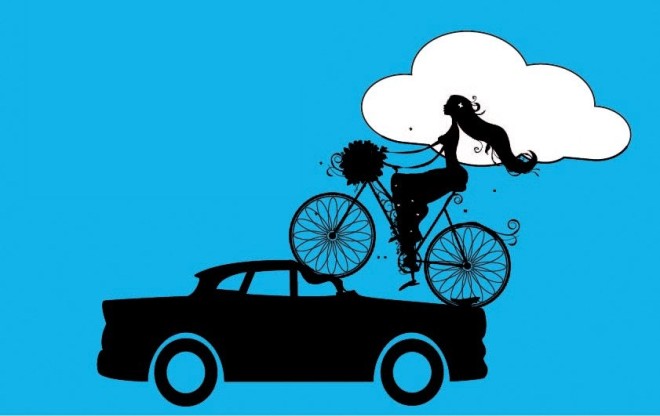
Car sales down, bike sales up: Two new bikes are sold for every car in Europe
Sales figures from the car and the bicycle worlds have been realeased. Guess what, the bicycle wins ! Our Policy Officer Fabian Küster explains us why it is a solid trend in Europe.
Early this week, ACEA, the European Automobile Manufacturers’ Association, presented the new sales figures, and they were not pretty from the car manufacturers perspective: Over the first quarter of 2013, units were down by 9.8 % compared to the same 2012 period. This adds to the February story when ACEA published that Europe’s car sales fell to the slowest February since it started compiling figures in 1990. From 2011 to 2012, sales went down 8.5 %, making from the 12 million units sold in the EU-27 2012 the worst year since 1995. And this is not yet the end of the story: Ivan Hodač, head of ACEA, estimates that sales in 2013 will be down another 5%–8%.
In contrast, bike sales increased in the EU-27 from 18.9 million units in 2000 to about 20 million units in 2011. In other words: for every car sold in Europe, almost 2 bicycles currently find a new customer. And these bikes are not just for decoration but they are used more and more: Germany saw a 50 % increase in cycling between 2002 and 2011; In the Netherlands, the success of e-bikes (pedelecs) contributed to an increase of 9 % in km cycled in just one year (from 2010 to 2011); Cycling in many capital cities doubled over the past decade, including in London and Dublin. Pedelecs are a main driver in this new mobility behaviour, making also for a convincing business case: in 2011, 716,000 electric bicycles were sold in the EU, compared to only 11,500 e-cars. A stunning relation of 62 : 1. This is one of the reasons why so many car manufacturers have entered the e-bike business.
According to Hodač, it is the financial crisis that is mainly to blame for declining car sales. While this might be true to a certain extent, there are other fundamental reasons behind this development, as Germany’s daily Sueddeutsche Zeitung explains: “In many countries, young people do not aspire car ownership anymore. Smartphones and tablets have partly taken over from the car as the new status symbols.”
It is an idle hope to believe that as soon as Europe’s economy recovers, car sales will go up again to pre-crisis levels. Young people in urban settings fare pretty well in just using a car when occasionally needed. While declining car sales may pose challenges to (some) European car makers, less car use and more cycling has at the same time great (economic) opportunities.
To be continued.
 About the Author
About the Author
Fabian Küster is a Senior Policy Officer at the European Cyclists’ Federation. He has previously worked in Brussels for a German Member of European Parliament and the German Embassy. He has wealth of experience in and around the EU institutions, and is an expert in the EU policy field of bicycles
- Log in to post comments
Contact the author
Recent news!
Upcoming events
Contact Us
Avenue des Arts, 7-8
Postal address: Rue de la Charité, 22
1210 Brussels, Belgium










